

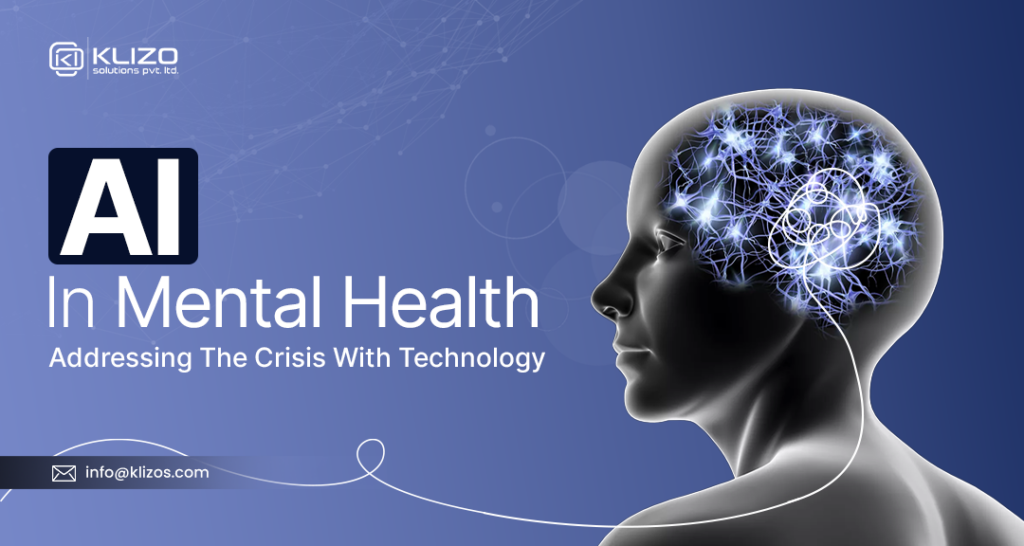
Have you heard about the application of AI in mental healthcare?
Well, AI in mental health is believed to help professionals better deal with mental health crises and assist individuals who lack access to proper treatment due to cultural stigma and limited clinician availability.
With more than one in every five adults in the United States suffering from some kind of mental health issue and one in every twenty-five U.S. adults experiencing serious mental health illness; it was time for a new treatment approach that can revolutionize the way mental health conditions are treated or diagnosed.
And that’s where AI or Artificial Intelligence came in!
Here in this article, you are about to find out everything that AI in mental health can do to help better diagnose and treat mental health issues.
Sounds exciting? Then, let’s jump in!
Suffering from mental health conditions is a crisis that plagues millions of people globally.
Sadly, there’s not only the barrier of stigma surrounding seeking treatment for mental health that prevents people from opting for proper treatment but also the lack of mental healthcare professionals to meet the growing need for mental healthcare.
According to a 2022 article by AAMC, the mental health system is already overburdened and will be short of between 14,280 and 31,109 psychiatrists by 2025 as the need for taking care of mental health is drastically growing. Over 150 million people live in areas federally designated as short of mental health professionals.
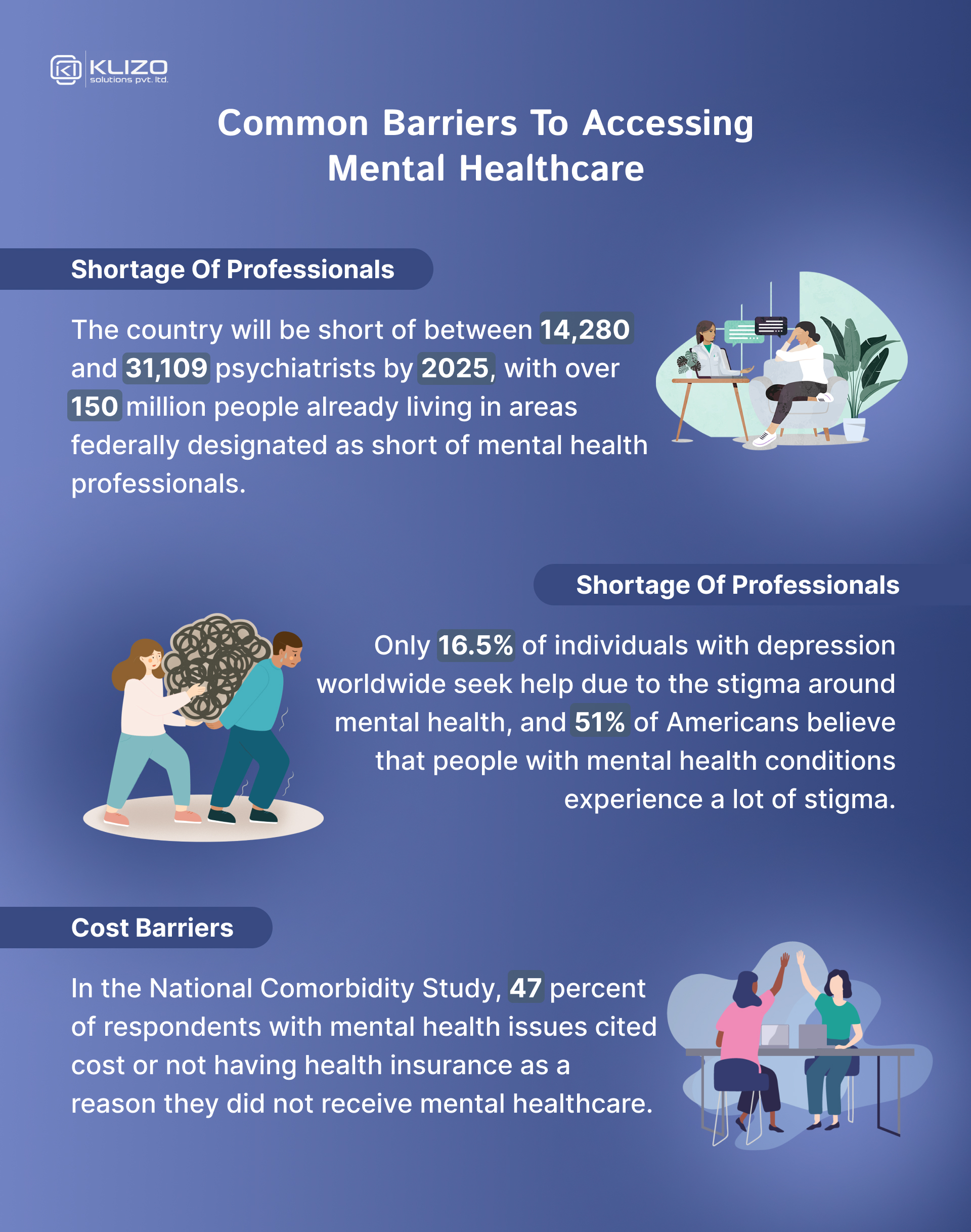
Plus, the growing number of patients suffering from mental health conditions strongly suggests the ineffectiveness of traditional medications and treatment methods that are there for treating depression, anxiety, PTSD, and other mental illnesses.
Hence a new approach is long required. And that’s where AI for mental health comes in. AI algorithms are believed to be one of the first lines of defense against the struggle of diagnosing and treating mental health.
From improved access to managing depression, and coordinating care, the perks that AI in mental health offers are numerous. To know about them in detail, let’s take a look at how AI mental health diagnosis and therapy can transform psychiatry.
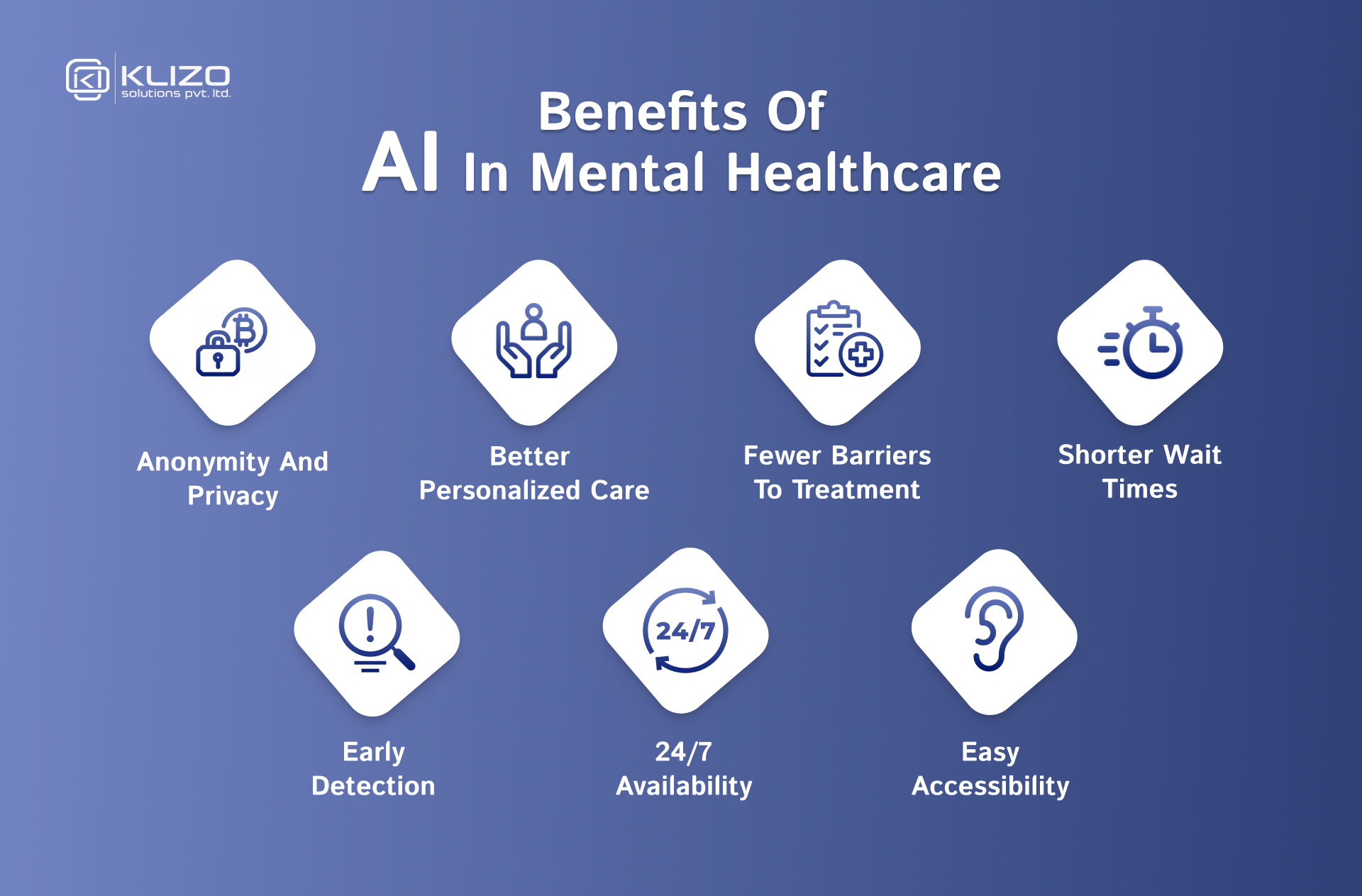
Privacy concerns have often been observed to prevent people from seeking the help they need for their mental health conditions. The stigma in society, associated with mental health treatment makes it harder for people to seek necessary treatment for mental issues freely.
But technology like AI lets people value and enjoy their privacy and anonymity, no matter what type of treatment they seek for their mental illness. Today, more and more AI programs are being rolled out using which users can opt for mental treatment and support while maintaining their anonymity.

AI in mental health has not only made receiving mental health care possible right at your home or at places where you feel comfortable and safe but has also eliminated the possibility of others knowing that you’re receiving mental health treatment.
Given the personal and sensitive nature of information shared during counseling and therapy, sharing such information face-to-face can be pretty intimidating. But AI letting you discuss your problems through the screen not only make the experience more comforting but also keeps the anonymity intact.
Getting treatment or being diagnosed with mental health conditions needs to be destigmatized to boost the outcome of the treatments. AI in mental health can help in doing so. How?
Well, by making mental health treatment and diagnosis subjective and more quantifiable.
No, there’s no blood test for detecting mental health conditions like other diseases. But the machine learning algorithm and the research-based objective tests can certainly help in identifying the need for a patient to opt for treatment.
Plus, the more people will seek for their mental health struggles and the more people become aware of it, the less opting for mental health treatment will be considered a shameful or secret act. And AI in psychotherapy is simply helping to mainstream mental health issues by democratizing access to mental health treatment.
Yes, AI-based mental health resources address the stigma, fear, guilt, and shame associated with mental illnesses that often prevent patients from reaching out for help and force them to suffer silently.
Unlike humans, machines do not make mistakes. AI-based technologies, being unimpeded by human emotions, are considered to be perfect. And this perfect technology, when implemented in mental health care, can work wonders in doing accurate analysis and giving error-free results.
For example, a mental healthcare provider, who has to rush from one appointment to another, might overlook or miss when a patient exhibits a subtle sign of any mental trouble. But an AI app won’t make such mistakes.
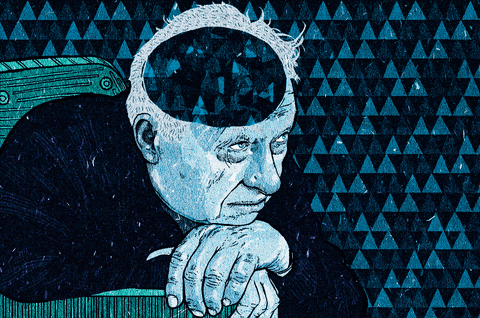
No matter how perfect the surface-level appearance of a patient is, AI in mental health tools will help identify the underlying issues through their algorithms and alert their busy medical professionals to probe into the mental health issues that have not yet been acute.
What if your doctor could get an early alert about you being at risk of a mental illness or deterioration of your existing mental illness? Won’t it be great?
Thanks to the progress of AI in mental health, it has been found in one study that using language analysis AI algorithms can 100% accurately identify teens who are more prone to suffer from psychosis.
Yes, just based on how often you are going out of your house or how fast you are typing on your smartphone, powerful AI-enabled tools can detect your mental health condition.
And the best part is that these incredible tools are already a reality. Oh yes, they exist very much. Examples: Moodkit, Pacifica, Joy, etc.

No patient goes to the doctor every day, right? But when we are talking about mental health illness, you never know when the mental condition can deteriorate. And in such scenarios, answering a few questions daily on your AI-powered mental health apps can help with determining the signs of trouble early.
Even for those patients who are under treatment, AI-enabled tools offering language analysis alert the doctor when to prepare for the worse.
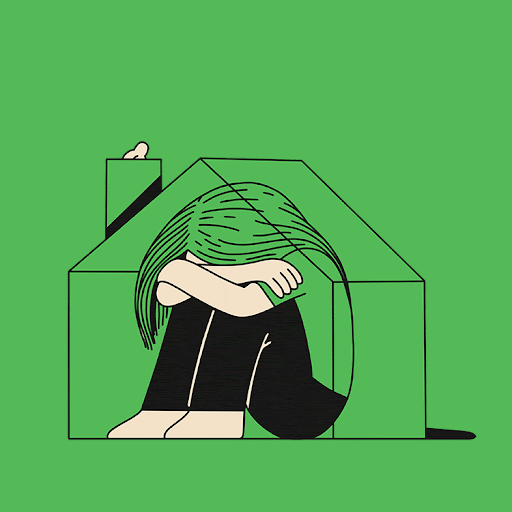
Timely intervention is of crucial importance when it comes to treating mental health conditions like Artificial Intelligence schizophrenia, especially for patients with medication dependence. AI tools create daily checkpoints that can not only help human providers but can also detect the downturn, if there’s any, to prevent an unlikely dangerous spiral.
What will one do if he struggles with his mental health condition in the middle of the night and desperately needs to talk to someone?
Thanks to AI mental health apps and chatbots like Wysa, WoeBot, Youper, etc., mental health support is accessible and available to people, irrespective of where they live or at what time they need assistance.
When suffering from mental health conditions, many people feel like sharing their struggles with someone. And surprisingly, they mostly prefer conversing and sharing their issues with anonymous chatbots to human beings.
And guess what, AI chatbots and AI in mental health support apps are 24/7 awake and always on call.
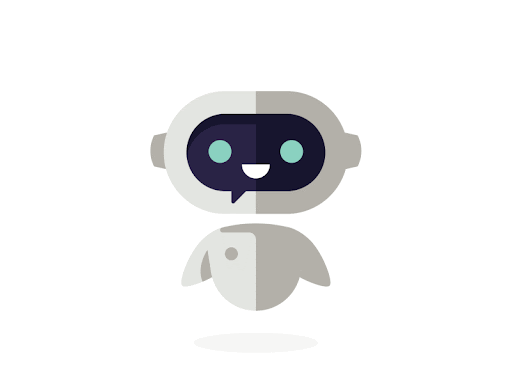
Considered to be a rather affordable and low-cost treatment option, mental health apps, and chatbots are already showing impressive results in tracking and boosting mood.
The smartphone-based AI integrated mental health apps, are not only walking the patients through various exercises as a part of cognitive-behavioral therapy; but also are offering immediate and quick assistance to those who face trouble accessing care.
The research-based techniques of these AI apps are already helping patients cope with their mental illness symptoms more easily.
The demand for mental healthcare services is increasing worldwide. In such a scenario, AI-driven innovation, ChatGPT, plays a crucial role in assisting therapists in providing more effective and personalized mental healthcare and therapy. For example, it can engage in empathetic conversations, provide emotional support, and suggest coping strategies to individuals.
Since it is constantly learning from an ever-expanding pool of data (various topics, different contexts, multiple languages), its potential applications within the healthcare industry are extremely promising. Using natural language processing (NLP) and conversational AI, this new AI technology is helping mental health professionals provide personalized and real-time care to their patients tailored to their specific needs and preferences.
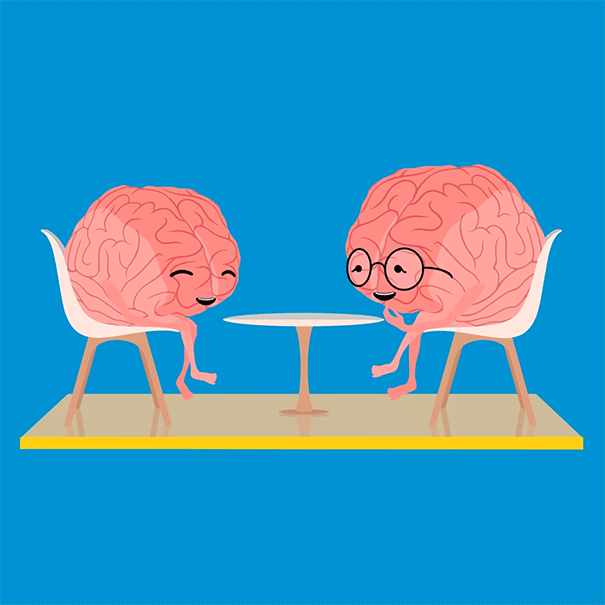
Offering healthcare professionals and patients immediate responses, ChatGPT helps with faster resolution of concerns and queries, increased patient engagement and satisfaction, and efficient use of the healthcare professionals’ time.
Along with being an easily accessible mental health support option, ChatGPT can generate personalized resources based on patients’ unique preferences and needs and boost the therapist-patient relationship by automating various aspects of therapy to reduce therapist burnout and analyze patients’ communication patterns to make the therapists understand their underlying thoughts better.
Integrating ChatGPT AI in mental healthcare therapy and counseling has a tremendous potential to revolutionize mental healthcare by making it more effective, easily accessible, and personalized.
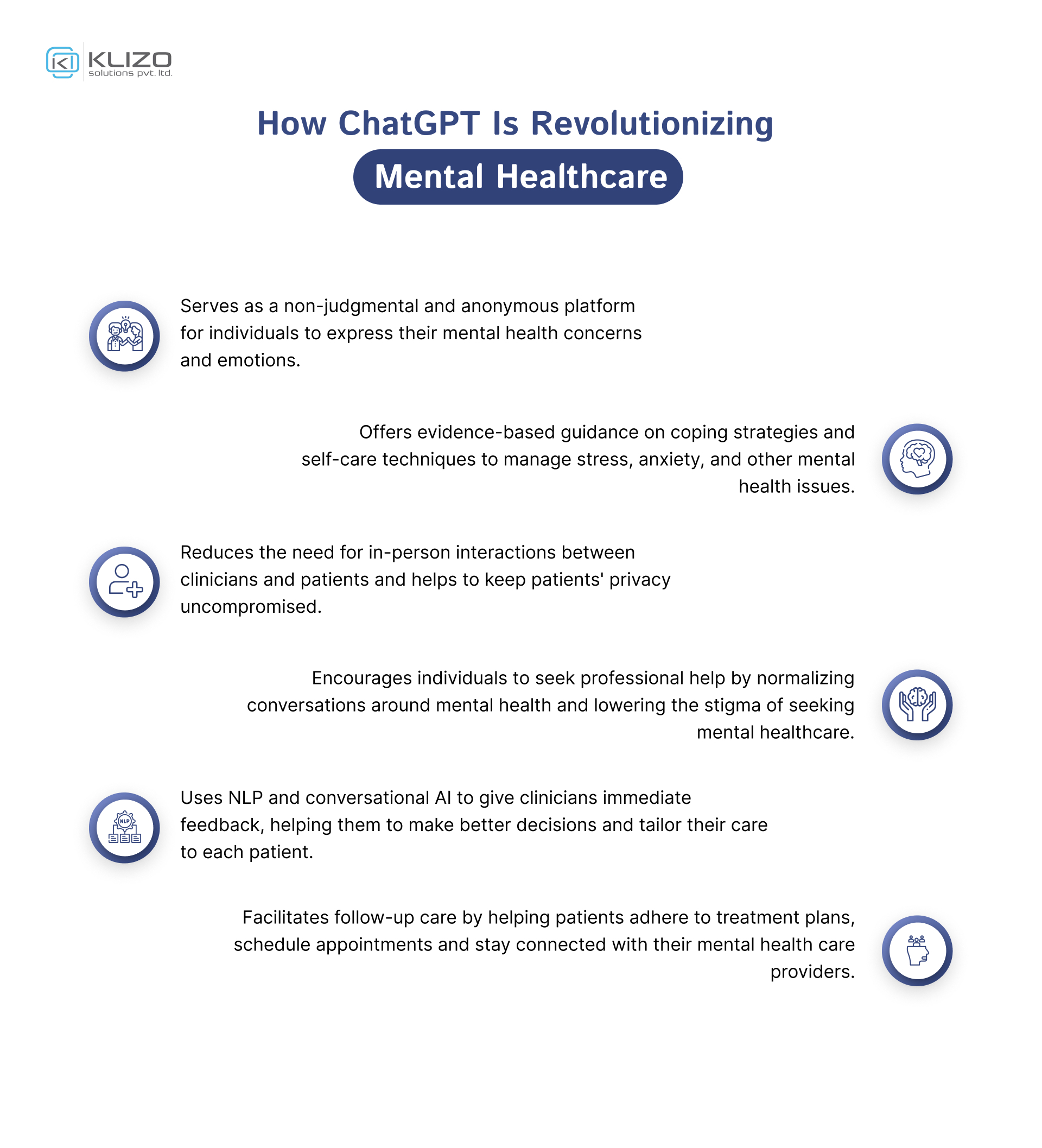
But we must not forget that neither AI in mental health can replace human therapists nor it is a one-size-fits-all solution for patients needing mental health care. The empathy that doctors or mental health care professionals offer, can never be provided by diagnostic machines, even if it’s AI integrated. No matter how efficient the services get after integrating AI, technology can never replace clinicians or doctors.
What it can do is help mental health professionals meet the increasing need for mental health services and offer instant assistance that many people urgently require, which is a big move towards mental healthcare. It can help doctors to focus more on the human elements of medicine instead of getting lost amidst data collection, storing them, and the minutiae of diagnosis.
AI in mental health is here to bridge the long-neglected gap between people seeking medical attention for mental health and treatment. AI is meant to help people overcome the barriers that have long prevented them from having access to the right mental health support and resources.
In 2022, the mental health market reached $418.9 billion globally and is expected to reach $508.9 billion by 2028. But still, the lack of professionals is one of the major barriers when it comes to seeking help for mental health-related problems.
Hence, considering the instant feedback and convenience, AI in mental health care is gaining solid ground.
So, yes, the mental health industry’s shift toward AI is inevitable in the coming years.
If your business is related to the same industry, it’s time you opt for AI integration to make your mental healthcare apps and services more efficient.
At Klizo Solutions, we help businesses better optimize their processes by integrating the latest technologies such as AI.
Give us a call today and find out all about how you can utilize the futuristic tech AI for the betterment of the mental healthcare services you offer.
Previous article
10 Trending Technologies Transforming The World Around You In 2023
Joey Ricard
Klizo Solutions was founded by Joseph Ricard, a serial entrepreneur from America who has spent over ten years working in India, developing innovative tech solutions, building good teams, and admirable processes. And today, he has a team of over 50 super-talented people with him and various high-level technologies developed in multiple frameworks to his credit.

Subscribe to our newsletter to get the latest tech updates.